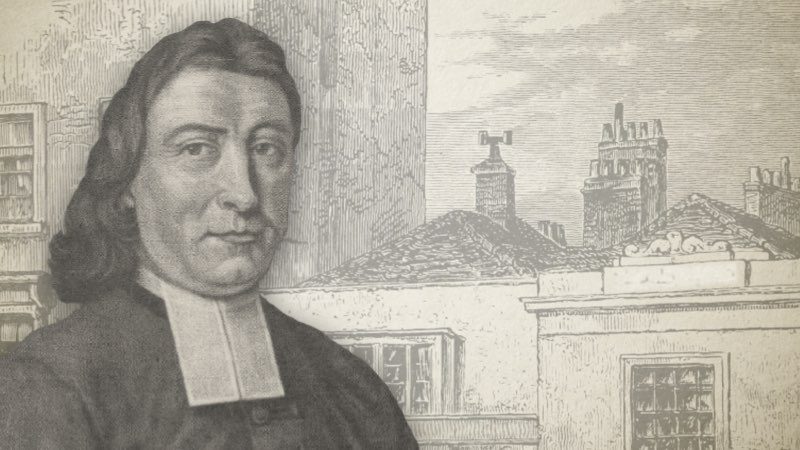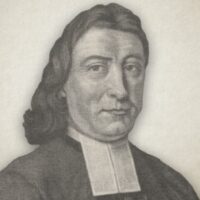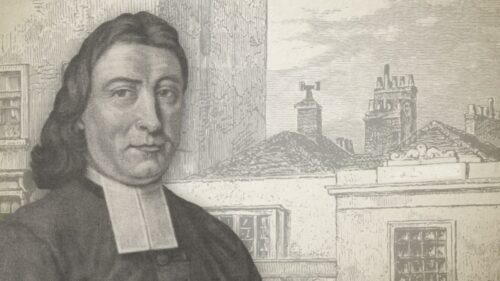
Third Preface (1973)
There have been many shifts in the sands of theological issues and terminology since the days of Fuller, Rushton, and Joseph Hussey, but the basic issues remain the same. In his Defence of Particular Redemption, William Rushton expressed the truth, that to be clear on the doctrine of election and the atonement, is more important than preaching the Gospel; that is, we must first understand the foundation principles of the good news;-then may follow the proper manner of presenting that good news. The erroneous and unscriptural teaching of a universal atonement by the sacrifice of Christ, inevitably leads to the equally erroneous proclamation of a universal offer of Salvation. The vital issue, then, still remains, namely, Did Christ make atonement for the sins of the human race? Is the good news or Gospel, to be preached as a means to secure eternally the subjects of that universal atonement? Was the utility or purpose of the Gospel to “save” all the lost, or to “call out” or convert only the redeemed elect? The so-called Free-offer system was another by-product of the doctrine of universal atonement. It was the manner of preaching adapted by those men who not only believed that Christ died to save all men, but also that men by nature, possess a Free-will ability whereby they may “accept or reject” the proposed “offer” of the good news. The burden of Mr. Hussey’s arguments is primarily to refute the unscriptural and Christ-dishonouring system of “Free offers” indiscriminately addressed to all alike. It is truly a blasphemous presentation of Christ’s “finished” redemption, offered to all who will make it Effectual by their acceptance of the proposed offer! The reader will note that Mr. Hussey’s arguments against Free-offers of Grace, are well undergirded with the scriptures of truth, especially those touching depravity of the human will, election, Effectual calling, and the work of the Holy Spirit in regeneration or the new birth. The author pauses to ask this pointed question: “Therefore why do you not look to bring the form of preaching to God’s work, than to bring down the power of God’s work to your form of preaching?” We must face the fact that now in our times, nearly all of “Christendom” is no longer concerned with the foundation doctrine of election and particular redemption. The chief concern is for the best operational “methods” to bring the most members into their system. The chief motive in the religious world is not to honour and exalt Christ and His Grace, but rather to advance a religious organization, often called “Christian Evangelism.” This old writing, will therefore be of interest to those only who still have some respect and concern for “the truth as it is in Jesus” and for “all the counsel of God.” It is to you, the following pages are again presented, for your confirmation and establishment in the truth. Having been written nearly three hundred years ago, you will find the style of expression somewhat different than now used. This, however, in many respects is refreshing and to the point. Once the reader gets the author’s trend of thought and expression, he will be well rewarded. If it be God’s will, may it please Him to use it in stirring up some “pure minds” on this important matter.
W. J. Berry, Sr., North Carolina, 1973.
Joseph Hussey (1660-1728) was a Congregational preacher. He was converted to Christ in 1686 after reading Stephen Charnock’s, “The Existence And Attributes Of God.” In 1688, he was ordained to the Gospel Ministry and was appointed the Pastor of a church in Hitchen. In 1691, he was appointed the Pastor of a church in Cambridge. In 1719, he was appointed the Pastor of a church in Petticoat Lane, London. He nurtured high views of sovereign grace, setting out a clear case against the free offer of the gospel. His teachings on this subject were published in a book called, “God’s Operations Of Grace But No Offers Of His Grace” (1707).
Joseph Hussey, God's Operations Of Grace But No Offers Of His Grace (Complete)




